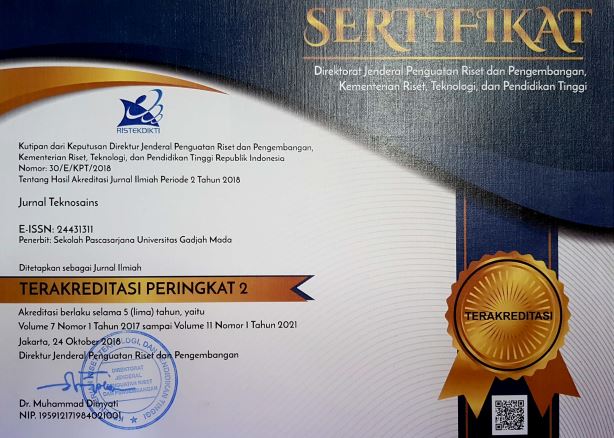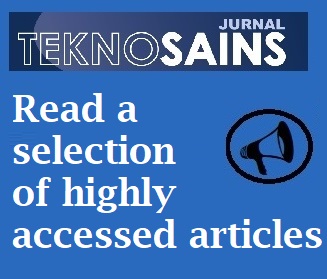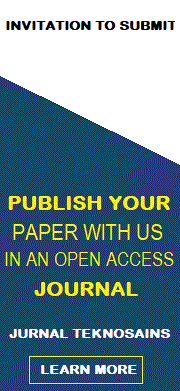MODEL OF MICROCLIMATIC INFLUENCE ON FLUCTUATION OF HERPETOFAUNA DIVERSITY IN CAMPUS AREA
Tony F. Qurniawan(1*)
(1) Faculty of Biology Universitas Gadjah Mada
(*) Corresponding Author
Abstract
The study on correlation of microclimates changes on fluctuations of herpetofauna diversity in campus area was
done for the last six years. Monitoring herpetofauna diversity was conducted from 2007 to 2012 using Visual
Encounter Survey. The analysis for designing a model on the influence of microclimates on fluctuations of
herpetofauna diversity performed by using smart PLS program. The result showed eight (8) species of amphibians
and twenty four (24) species of reptiles were identified within the last six-year visits (2007-2012). New country records
of Lepidodactylus cf lugubris (Geckonidae) species were documented. The results also showed that fluctuations of
herpetofauna diversity in campus area was influenced by microclimates elements. The model of microclimatic
influence on fluctuations of herpetofauna diversity showed that the humadity becomes a major factor influencing
on fluctuations of herpetofauna diversity in campus area with the predictive-relevance (Q2) value is 99,817%.
done for the last six years. Monitoring herpetofauna diversity was conducted from 2007 to 2012 using Visual
Encounter Survey. The analysis for designing a model on the influence of microclimates on fluctuations of
herpetofauna diversity performed by using smart PLS program. The result showed eight (8) species of amphibians
and twenty four (24) species of reptiles were identified within the last six-year visits (2007-2012). New country records
of Lepidodactylus cf lugubris (Geckonidae) species were documented. The results also showed that fluctuations of
herpetofauna diversity in campus area was influenced by microclimates elements. The model of microclimatic
influence on fluctuations of herpetofauna diversity showed that the humadity becomes a major factor influencing
on fluctuations of herpetofauna diversity in campus area with the predictive-relevance (Q2) value is 99,817%.
Keywords
Monitoring; Reptile; Amphibian; Path modeling; Partial Least Squares
Full Text:
PDFArticle Metrics
Refbacks
- There are currently no refbacks.
Copyright (c) 2015 Tony F. Qurniawan

This work is licensed under a Creative Commons Attribution-ShareAlike 4.0 International License.
Copyright © 2024 Jurnal Teknosains Submit an Article Tracking Your Submission
Editorial Policies Publishing System Copyright Notice Site Map Journal History Visitor Statistics Abstracting & Indexing









